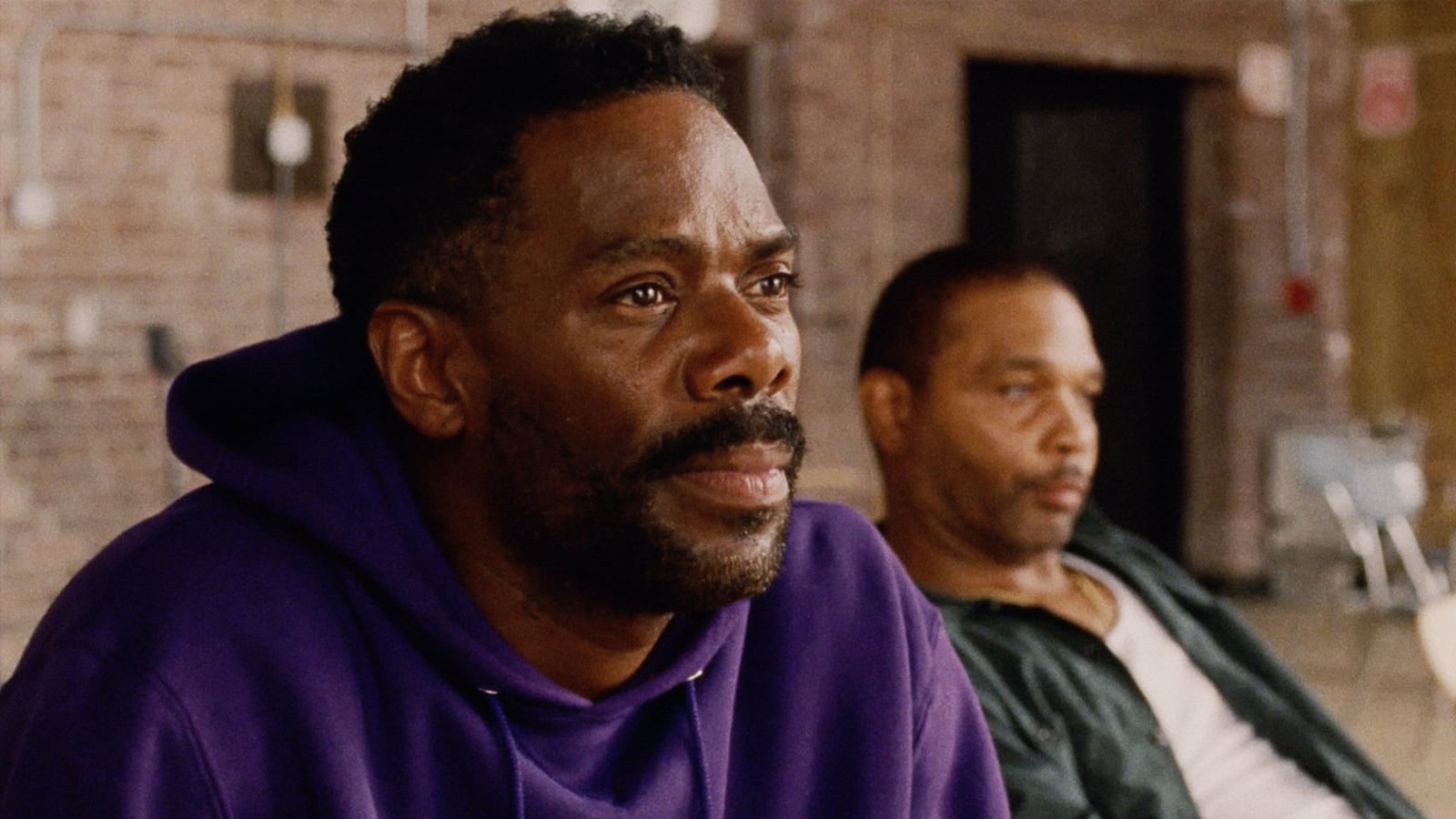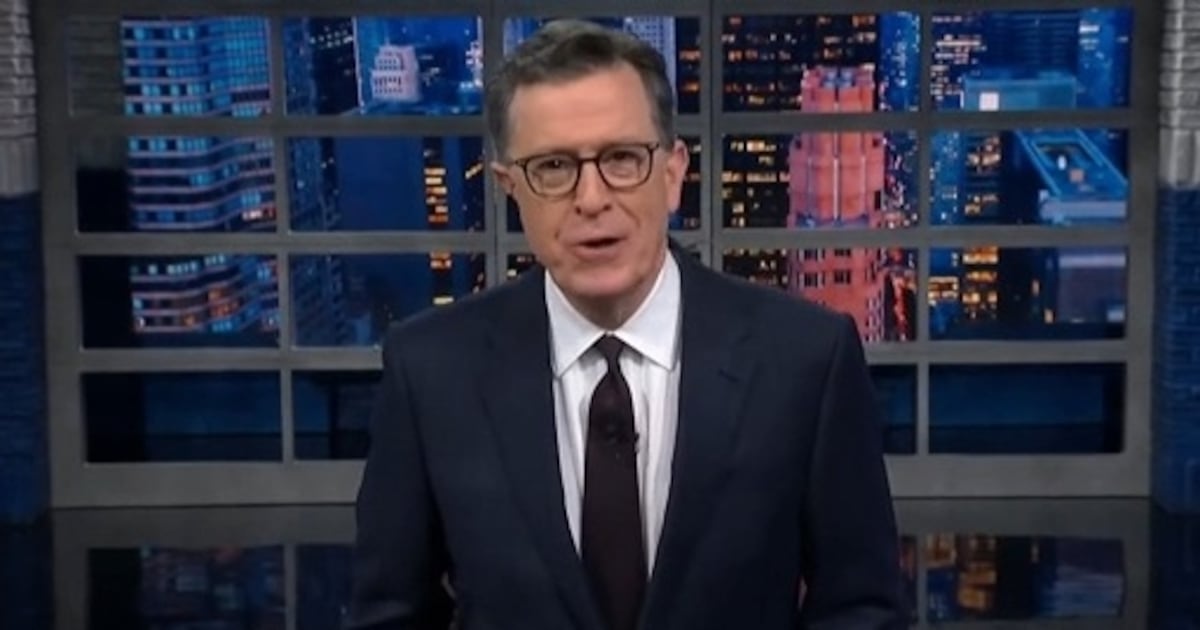Shakespeare has nothing on the theatrical masterminds at the Sing Sing Correctional Facility. That’s probably because Shakespeare never had the guts to blend his Hamlet with Gladiator, Blazing Saddles, and Back to the Future. But few in the world would have the pure gall to experiment with around a dozen genres at once—the theatre group in Sing Sing, however, has no inhibitions about putting on such an ambitious production.
Although the play in question is definitively a comedy, Sing Sing—director/writer Greg Kwedar’s sophomore feature, following 2016’s Transpecos—has that magical balance of wit and sentiment. Based on a true story reported in Esquire in 2005, Sing Sing sees a full production come to fruition in the brilliant theatre group at the Sing Sing Correctional Facility, located in Ossining, NY. Although the group has always put on drama productions under the leadership of John “Divine G” Whitfield (Colman Domingo), an incarcerated man who has taken most leads in the productions, and director Brent (Paul Raci), a newcomer spins the group on its head when he pitches a new idea: Why doesn’t the group put on a comedy? They need to lighten up!
In many ways, the theatre group seen in Sing Sing—which had its U.S. premiere at this year’s SXSW Film Festival on Friday—mirrors the same structure as high school theater. There’s the ringleader and his second-in-command, Mike Mike (Sean San Jose), as well as a director who works closely with the recurring main star. Then, out of nowhere, a younger newbie threatens to dethrone the superstar. In Sing Sing, that newcomer is Clarence “Divine Eye” Maclin (starring as himself), who is recruited by the company and the first to pitch this swap to lighter content. While Divine G has always brainstormed their projects—and even written some himself—the group is tired of Shakespeare. They like Divine Eye’s idea of blending Robin Hood, Peter Pan, and… Hamlet, notoriously not a comedy, and notoriously written by Shakespeare.
From there, Brent pens a script that is a third time-traveling, a third mummy-movie, a third Hamlet, and wholly incredible. Again—this was a real production that actually happened, which is bizarre and miraculous and hilarious all at once, a true marvel to watch be recreated in Sing Sing. Brent tries to describe the plot, and we learn more as we watch the men practice: This play, titled Breakin’ the Mummy’s Code, is about an ancient Egyptian named Leslie who travels through time to uncover clues that lead him to finding his lost mummy. Leslie finds himself in ancient Greece, in Shakespearean England, in the American West, and in goddamned outer space in an attempt to locate his body in the future.
This play serves as a spectacular starting point for Sing Sing, which transforms into something even bigger and more poignant as we learn more about the characters. As acting exercises, the men talk about their favorite moments, introduce themselves as their characters, and talk about the people they miss the most. The ensemble is lovable from the moment they start to giggle about Brent’s sure-to-be-Tony-nominated script, become even more endearing as they audition, and have a lasting impact as they devote themselves to their roles. Sing Sing is made even better by the fact that most of the stars play themselves; David “Dap” Giraudy, Patrick “Preme” Griffin, and Sean “Dino” Johnson round out the cast.
Domingo, who should certainly earn his second Oscar nomination for this part, ties the group together like glue. He pulls off an acting tour-de-force as Divine G, who is trying to be granted clemency after being at Sing Sing for over a decade while also managing the theater program. It’s a lot to balance. G is also attempting to mentor wary Divine Eye—although G seems to hold a bit of contempt towards Eye after he stole the role of Hamlet. After all, Eye was the one who pitched comedy, why does he want to play the one dramatic role! Domingo may be the shining star of Sing Sing, but really, it’s hard to say who’s the best here—any moment Mike Mike is on screen is heart-wrenching, and G really steals the spotlight from Eye. (Literally.)
Again, like high-school theater, this theater group becomes a safe space for the people who are incarcerated, a haven for them to express themselves and pretend like life’s a little normal. When Divine G starts to become distrustful of the men, fearful they’ll make fun of his acting, one of his co-stars tries to ease his anxieties: “We’re here to become human again,” he says, the most powerful line of the film. “To put on nice clothes and dance around. To enjoy the things that are not in our reality.” These men soar through space and time to discover the real truth about life: Art can save us. Like the theatre group, Sing Sing the movie has the power to save—be it our hope for humanity, our love of the arts, or however else.
But Sing Sing is not just inspirational. As much as it is bright and moving, it is equally a push to correct our flawed justice system. Divine G has been incarcerated for more than a decade for a crime he did not commit; even though he finds friendship and purpose in the theatre group, G still finds himself feeling lost and hopeless. When he’s not reading lines for the play with Mike Mike, he’s reading lines from the script he’s written for himself to use in future interviews that he may have with the people who will determine his fate. In one of those interviews, G faces one of the most cruel questions of his life: If he’s so proud to be leading the theatre program at Sing Sing, who’s to say he isn’t acting now, pretending to be innocent?
Sing Sing is a revelation—although perhaps not as much as Breakin’ the Mummy’s Code. But nothing could top a story that sees a young Egyptian boy calling out for his mother, “Mummy! Mummy!” Comedic gold. Shakespeare ought to hand over his crown for being the greatest playwright of all time to anyone involved in the creation of Sing Sing, the first total triumph of the year.






